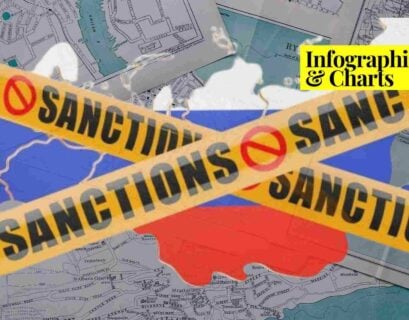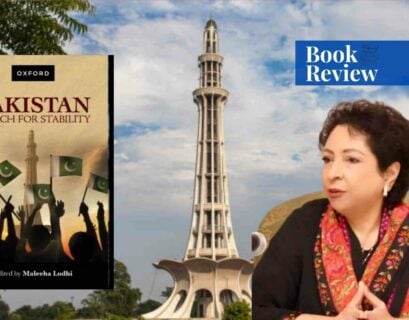Ms Afifa Iqbal has a keen interest in identity politics, colonialism and post-colonial development. She is currently working as a Research Assistant at ITU while pursuing her postgraduate studies in Development, Technology and Policy. She is a Gold Medalist in Political Science from the University of Punjab.
Introduction
In a joint statement released on the 10th of March, Saudi Arabia and Iran acknowledged China’s role in brokering the diplomatic breakthrough and stated: “The three countries announce that an agreement has been reached between the Kingdom of Saudi Arabia and the Islamic Republic of Iran, that includes an agreement to resume diplomatic relations between them and re-open their embassies and missions within a period not exceeding two months, and the agreement includes their affirmation of the respect for the sovereignty of states and the non-interference in internal affairs of states.”
Given the intensity of Saudi-Iran animosity and the overall politico-strategic climate of the region as well as the Muslim world, the rapprochement between Iran and Saudi Arabia is a much-welcome development. In addition, the mediatory efforts of China, given its increasingly important global status in a world hurtling towards multipolarity, signals a potential reordering of global diplomatic dynamics.
Snapshot of Saudi-Iran Rivalry
Iran and Saudi Arabia have been at the opposite end of a bitter rivalry for decades, characterized by political, religious, and economic tensions, as well as competing regional influence and geopolitical interests. Although the two countries had been involved in proxy wars in various parts of the Middle East, the execution of Shia cleric Sheikh Nimr al-Nimr by Saudi Arabia in 2016 marked a particularly dark moment in the already fraught relationship between Iran and Saudi Arabia.
The tentacles of the Saudi-Iran rivalry have spread far beyond the Middle East, carving out a deep and divisive sectarian fault line throughout the wider Muslim world. For instance, Pakistan has suffered a great deal due to the extended fight of the aforementioned archrivals for religious legitimacy and ideological domination of the Muslim world.
The mushrooming of Saudi-backed madrassahs after the invasion of Afghanistan by the Soviet Union can largely be held responsible for the twin problems of puritanical fanaticism and religious persecution of Pakistan’s Shia minority. One particularly jarring event that highlights the extent of this rot in Pakistani society—and is still fresh in public memory—is that of anti-Shiite protests by the Sunni hardliners and their sympathizers that engulfed Karachi in September 2020.
As Kim Ghattas argues in “Black Wave”: “The Saudi-Iran rivalry went beyond geopolitics, descending into an ever-greater competition for Islamic legitimacy through religious and cultural domination, changing societies from within—not only in Saudi Arabia and Iran but throughout the region.”
From Rivalry to Reconciliation
Following the Saudi government’s execution of Sheikh Nimr al-Nimr, a prominent Shia cleric and vocal critic of the Saudi government in 2016, the aggrieved Iranian protestors stormed the Kingdom’s embassy in Tehran. The images of smoke billowing from the Saudi embassy, with fire engines and police in riot gear stationed outside and the diplomatic enclave barricaded, vividly illustrated the depth of anger felt by many Iranians towards the execution.
Soon after, in retaliation, Saudi Arabia announced to sever diplomatic relations with Iran dashing any and all hopes of reconciliation. The press conference by the Saudi foreign minister, Adel al-Jubeir, aptly depicted the anger of the Saudi government over the storming of its diplomatic mission in Iran; “These ongoing aggressions against diplomatic missions are a violation of all agreements and international conventions.”
So, between then and now, what changed? In 2016, the global politico-strategic climate was markedly different from today. Iran had locked down the JCPOA (Joint Comprehensive Plan of Action) agreement the year before, and with the gradual lifting of sanctions, the prospects for the revitalization of the Iranian economy were improving.
As for the Kingdom, although Washington had certain apprehensions about the Kingdom’s involvement in the Yemeni civil war and its human rights record, the bilateral relationship between the two countries was still strong, and it only got better with the ascension of Donald Trump to the White House. The first foreign visit of Mr. Trump was to Saudi Arabia.
As Bruce Riedel, director of Brookings’s Intelligence Project, explains; “[T]he Saudis flattered Mr. Trump in every way possible and he returned the flattery. And since then he has given them, in effect, a blank check for their foreign policy and for their internal politics.”
While Saudi Arabia was at the receiving end of Trump’s benevolence, Iran faced his wrath. The reinstatement of economic sanctions against Iran by the US, as well as the pressure placed on other JCPOA signatories to follow suit, put Iran in a tight spot. Amidst this, the assassination of General Qasem Soleimani, commander of the Quds Force, further aggrieved Iran prompting it to increase its influence in Iraq and intensify the proxy activities in the Middle East. This, in turn, added to the anxieties of Saudi Arabia about the increasing influence of Iran in the region, creating a vicious cycle of distrust and diplomatic sparring.
After the election of Joe Biden to the presidency, the climate in Washington started shifting against Saudi Arabia. The performative moral posturing of the Democratic Party meant that human rights abuses would get configured in the US and Saudi Arabia relations. The Biden administration paused several arms deals with Saudi Arabia and imposed sanctions on certain individuals associated with the Kingdom.
The reassessment implied that Saudi Arabia had to reconsider its approach towards Iran and cultivate new strong allies apart from the United States. Between 2021 and 2022, several rounds of dialogue between Saudi and Iranian officials took place in Iraq and Oman which ultimately culminated in the re-establishment of diplomatic relations between the two states.
The rapprochement does provide hope and opportunity for both states to engage in a constructive dialogue, build trust, and work towards tempering off the proxy wars, but it requires absolute commitment from both states.
The presence of a powerful mediator to assure that the two states remain on the reconciliatory path is instrumental in this regard. For instance, after the Second World War, it took years of concerted efforts by France, Germany, and other Western European states to overwrite centuries of grievances with the help of active diplomatic, security, and economic support from the United States.
An Analysis of China’s Role
The People’s Republic of China’s commitment to non-interference in the internal affairs of sovereign states offers a refreshing departure from the performative moral posturing and neo-imperial logic of American exceptionalism. One would hardly find Chinese officials making impassioned speeches on international platforms about the moral bankruptcy of their opponents and proactively issuing unilateral calls for arms against countries allegedly posing an existential threat to their country.
Hence, the involvement of China in Saudi-Iran reconciliation is a good omen and presents an alternative to American involvement in the diplomatic process. It also shows that America is no longer the only sheriff in town. The emergence of China as a major global power is disrupting the longstanding hegemony of the US in dictating the direction of global affairs in accordance with its own agenda.
The increasing diplomatic footprint of China, hot on the heels of economic investment in other states and a shared progress narrative, is also a clear indication of China’s ambition on the world stage. In the Saudi-Iran context, these tendencies mean that China stands to benefit more from the establishment of strong diplomatic relations between the two Gulf states.
Earlier, China entered into a twenty-five-year partnership with Iran worth $400 billion, and more than 25% of Saudi oil imports are headed towards China. Moreover, brokering the deal has added to the diplomatic clout of the People’s Republic of China in the embattled Middle Eastern region.
Conclusion
The recent diplomatic breakthrough between Saudi Arabia and Iran, whilst not a panacea, is indeed a positive step towards reducing tensions and promoting stability in the Middle East. Ultimately, the path towards lasting peace and prosperity in the Middle East will require patience, persistence, and a commitment to constructive engagement. To this end, the increasing importance and role of China signal a shift in the ethos of global diplomacy; a welcome break from the ethos marked by neo-imperialism and adventurism of the US.
If you want to submit your articles, research papers, and book reviews, please check the Submissions page.
The views and opinions expressed in this article/paper are the author’s own and do not necessarily reflect the editorial position of Paradigm Shift.



















